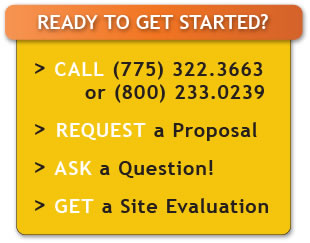Making Great Blog Titles for SEO Requirements
Webmasters and copywriters are constantly facing one particular problem – how to create and publish content that is helpful for human users and at the same time complies with SEO requirements including optimized blog titles. No wonder that the majority of copywriters and web content creators hate SEO since often it hampers the process of content creating. Writing texts which are helpful for users is not enough these days. It is possible that you have the best blog or site in a particular niche; however, it makes no sense unless it gets traffic. In other words, in compliance with SEO rules will bury any site, keeping it out of Google 100 (as known, to get a sufficient amount of traffic it is important to rank in TOP-20). And Great Blog Titles are a overlooked and easy way to improve Google ranking performance. A great resource for more information about optimizing blog titles is here
SEO and Good Blog Content Are a Match Made In Heaven
SEO rules concern any blog posts and their parts, including titles. Yes, by writing non-optimized titles in terms of SEO, copywriters may decrease website’s chances of getting high search engine rankings. A title is an extremely important part of a blog post. Firstly, it grabs attention of potential visitors and customers and well as plays a great SEO role. Search engines use titles and keywords contained in titles to rank sites. Besides, a site title is what you see in search engines results.
Although a title is the shortest part of a blog post, it is imperative to follow certain title writing rules and norms. As already said above, a title has a dual role, i.e. helps both visitors and search engines. Listed below are 5 hot tips on how to write SEO optimized blog titles.
1. Write short blog titles.
Of course, we do not mean 1-2 words here. The best title length is about 60-70 characters. Writing longer titles is not recommended for two reasons. Firstly, search engines like Google cut down longer titles anyway. Secondly, long titles are more difficult to read for visitors. Thus, a long title is ineffective both in terms of SEO and readability. Just check the number of characters before posting the text. Of course, sometimes it is difficult to create a short and catchy title, so, think of the ways to convey the key idea with several words.
2. Identify your keywords for Google.
Perhaps, all experts would agree that using primary keywords in titles is a must. So, make sure you have primary keywords in the title. Moreover, it is recommended to use them at the beginning of the title or in the middle to help search engines index the new webpage and give Google a clue on what primary keywords for the webpage are. For instance, if you have a title consisting of 6 words, make sure the first ones are your keywords. Of course, it is imperative to avoid keyword stuffing since this will not only negatively affect readability of the title, but also may cause sanctions from Google (which are crazy these days, especially after Panda and Penguin). You are probably well-acquainted with these recent updates. Make sure to use relevant keywords!
3. Write descriptive and “catchy” titles.
Well, forget about SEO for a while and focus on creating quality content for website visitors. Blog titles should be informative and descriptive. In other words, having read the title, visitors should have an idea on what the blog post is all about. A title should grab attention and be compelling to read on. At the same time, do not fool your readers. Yes, you may write a title that will look like a newspaper screamer, i.e. truly sensational. However, when visitors find out that the blog post itself does not contain promised info or tips, they will hardly return to our blog.
4. Write original titles (No Cheating… Google will know!).
This may sound obvious for lots of webmasters and copywriters; however, duplicate content is a common problem. Make sure you create unique titles for each blog post. Sure, sometimes, involuntarily, we create duplicate contents. At the same time, it is possible to use online plagiarism detection tools to make sure the content is 100% original. As known, search engines may penalize sites for posting duplicate contents. Falling into Google’s disgrace might take a few minutes, while even experienced webmasters may need months to get the site back to top 10. So, be particularly careful with uniqueness of titles, since such mistakes can be too costly.
5. Writing for search engines is writing for people (No duh!).
Perhaps, you have met bloggers who claim they write for people, not search engines. However, it should be said that writing for search engines is writing for people since if you comply with the above mentioned rules. There is nothing wrong in creating short, catchy titles that contain targeted keywords. Why not take advantage of own or somebody else’s SEO experience and write titles that your visitors and search engines will like. You may like it or not, but we all play by these Google Panda rules. The aim of all search engines is to deliver helpful and relevant search results.
More Resources:
Want to learn more? Need help with your blogs? We can assist you!




